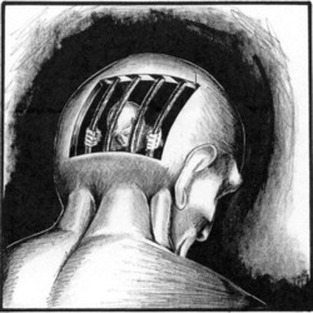|
by Blanca Garcia '16  “Trans-human” literally means “beyond human,” exactly what the movement pushes towards. As an international cultural and intellectual movement, trans-humanism is working towards transforming the human experience through biotechnology, robotics, artificial intelligence, and radical science. The imaginative applications of the current technologies and future advancements are limitless, and both scientists and intellectuals are already envisioning a different society. One such intellectual is philosopher Rebecca Roache. Roache leads a team of scholars at Oxford University in revolutionizing the future of punishment through science. In line with the trans-human movement, Roache and her fellow scientists are planning to utilize trans-human advancements in the allocation of punishment. In her work, Dr. Roache cites Dr. Aubrey de Grey, cofounder of the anti-ageing SENS research foundation. Dr. Grey believes that soon we will be able to slow down, if not halt the ageing process all together, enabling humans to remain healthy and live out thousands of years. Dr. Roache, who does not shy from bold statements, proposes, “in cases where a thirty-year life sentence is judged too lenient, convicted criminals could be sentenced to receive a life sentence in conjunction with lifespan enhancement.” And, the expense for society, she argues, would be balanced by the increased contributions of a longer-lived workforce.
In a separate thought, Roache also proposes an alternative method that would cut costs for incarcerations, benefiting society and its taxpayers. This alternative includes manipulating the prisoners’ perception of time. There are simple time distortion techniques that are being used this very day, such as constant exposure to light, or unusual light changes so that prisoners can’t tell what time of day it is. Lowering body temperature, is also a technique used to slow the perception of time. Roache foresees institutions that are designed with the idea of manipulating the perception of time through techniques such as these to ensure a prisoners’ sentence passes as slowly as possible. Thus, incarceration time could be made “more efficient.” In the future, Roache predicts altering of perception of time will go beyond external factors and instead, will be controlled by psychoactive drugs. Psychoactive drugs already slow down the perception of time for users. Scientists are now claiming future biotechnology will allow for prisoners’ minds to trick them into thinking they have served a 1,000-year sentence. For Dr. Roache, the safety of current prison officers is a limiting factor in how ‘unpleasant’ prison can be made for inmates. In order for the prisoners to be managed safely and calmly they must be ‘relatively content.’ Therefore, through the substitution of robots for prison guards, the limiting factor is removed and possibilities for making punishment worse become viable without endangering prison staff. Conceivably, Dr. Roache’s suggestions have received criticism. Criminal justice expert, David B. Muhlausen warns, “I think we should have caution with that approach,” referring to time dilation as a solution for over population in U.S. prisons. ActivistPost, an independent news blog with a focus on activism, worries of the time dilation drug landing in the wrong hands, describing Roache’s ideas as “something out of a Nazi experiment.” Roache claims that it is the unfamiliarity of tinkering with the brain that “spooks us.” But, given that the U.S. is fairly familiar with cases of extreme injustice, torture, and racial and socioeconomic disparities in implementing punishment, providing it with yet another tool seem far from unfit. In Roache’s publication of enhancements to punishment, she clarifies that these methods are reserved for the worst of criminals. She also acknowledges that none of these methods have been deemed as humane and she encourages debate on the topics. These technologies, she stresses, are not only meant to increase the severity of the punishment, they can also be used to reevaluate the ideas we hold about punishment and the way punishment is approached and carried out in this day and age. Dr. Roache said, “Is it really OK to lock someone up for the best part of the only life they will ever have, or might it be more humane to tinker with their brains and set them free?”
0 Comments
Leave a Reply. |
